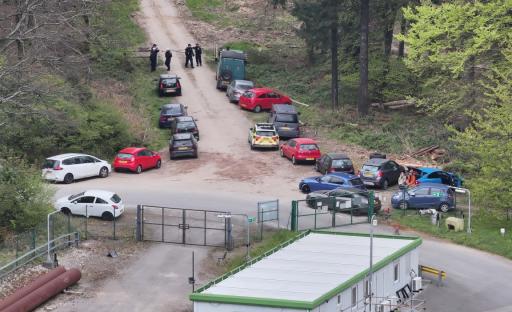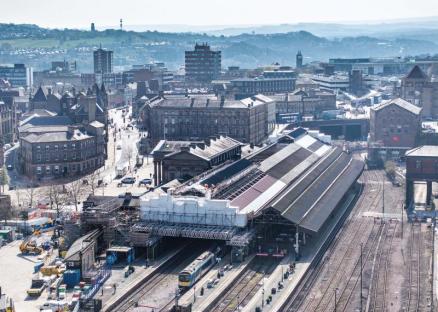Concerns are being raised around the B.C. government's announcement on Monday to crack down on travel around the province as COVID-19 numbers surge.
B.C. Premier John Horgan announced that travel restrictionswill take effect across the province on Friday, asking everyone to stay in their health authority and only travel outside for essential reasons.
“This will be conducted through random audits, not unlike roadside checks or CounterAttack during the Christmas season,”; Horgan explained.
Read more: COVID: B.C. to implement random roadside checks to restrict provincial travel
However, Public Safety Minister Mike Farnworth clarified Tuesday, saying the province is examining the use of periodic roadblocks only set up at places like BC Ferries or on Highway 1 leaving the Lower Mainland, to discourage recreational travel, and not conducting random individual stops.
More information is expected to be announced by Farnworth Friday but questions are being raised in the meantime.
“One concern is how tailored this law is going to be to what their objective is,” Meghan McDermott, staff counsel with the B.C. Civil Liberties Association told Global News.
“So at first, it seemed like they just wanted to get at restricting movement in between health regions. A prime concern there is why the boundary of the health regions? What do they have to do with infection rates?”
She added that even taking a SkyTrain from one part of the Lower Mainland to another could put someone at risk.
Horgan said Monday the province will also make sure to liaise with Black, Indigenous and people of colour to bring in these travel restrictions in a “way that does not give anyone fear.”;
He said the police will be given no additional powers, but there will be random “audits”; to catch those who are “blatantly disregarding the rules.”;
McDermott said this is a huge concern around enforcement and expanding powers for police.
“We have always been against discretionary police powers, particularly around police checks. There's very clear evidence that police all over B.C. and all over Canada discriminate against Black, Indigenous and other racialized individuals, so there's certainly a concern for pretext policing being used here,” she said.
Read more: ‘Violent' arrest of Black SFU alumnus at Burnaby campus draws fire
“The idea that police are saying they are going to be checking for compliance with public health orders but really they're going to be looking around for other reasons to nail certain people.”
She said they would prefer public health officers enforcing those restrictions.
The police will be waiting for the Emergency Program Act order – and any associated guidelines – to inform the next steps.
“So many questions. It's a bit of a circus for the government to propose something and be so vague about it. To warn the public and let us stew about it. It's a bit of a vacuum and an alarming vacuum to be in.”
McDermott said they hope the government is very clear in their language around these orders being announced Friday.
“How do you provide evidence of essential travel and what is essential travel?” she said.
“Once you stop the person, once you have the authority to check them, the concern would be about the pretext. So if you have certain individuals coming through or certain people coming through in cars, again the discretion could be used in a discriminatory manner.”
She said it raises the question about who the government is really going after with these new restrictions.
Previously, the government has said travelling for work or school is considered essential along with needing to travel for a hospital or medical appointment.
Read more: COVID: B.C. to implement random roadside checks to restrict provincial travel
BC Ferries will not be allowing travelers with campers and trailers and will not be adding additional sailings on the May long weekend.
Horgan said people should not travel even within their health authority if it means booking accommodation in another community.
“What is it about being in a car that might put others more at risk?” McDermott asked.
“It's just unclear going after this vehicular travel. It's kind of interesting, it just seems a bit arbitrary too as there's so many people who don't have cars and they might be travelling in other ways.”
SFU researcher Julianne Piper told Global News Tuesday that the announcement from Horgan was “welcomed” as their research has shown that jurisdictions that have reacted early and restricted travel have been successful in stopping the spread of COVID-19.
“So this is really a welcome recognition by the provincial government of the role that travel has played in the introduction and spread of variants throughout B.C.,” she said.
Read more: Canada's travel restrictions: How hotels, isolations sites help stop COVID-19
“There has been a lot of mixed and changing messaging around travel since the beginning of the pandemic but we also know, based on where we're at now, it clearly hasn't been enough to rely on people's higher nature to stay home and stay within their communities.”
Piper said they also expect that on Friday the government will provide clear definitions around what is an essential reason for travelling.
McDermott agreed that very clear guidelines will be needed.
“I would expect they better spell it out very clearly and have it very limited to what non-essential means because it's so unclear,” she said.
“We all have ideas about what's essential or not.”



